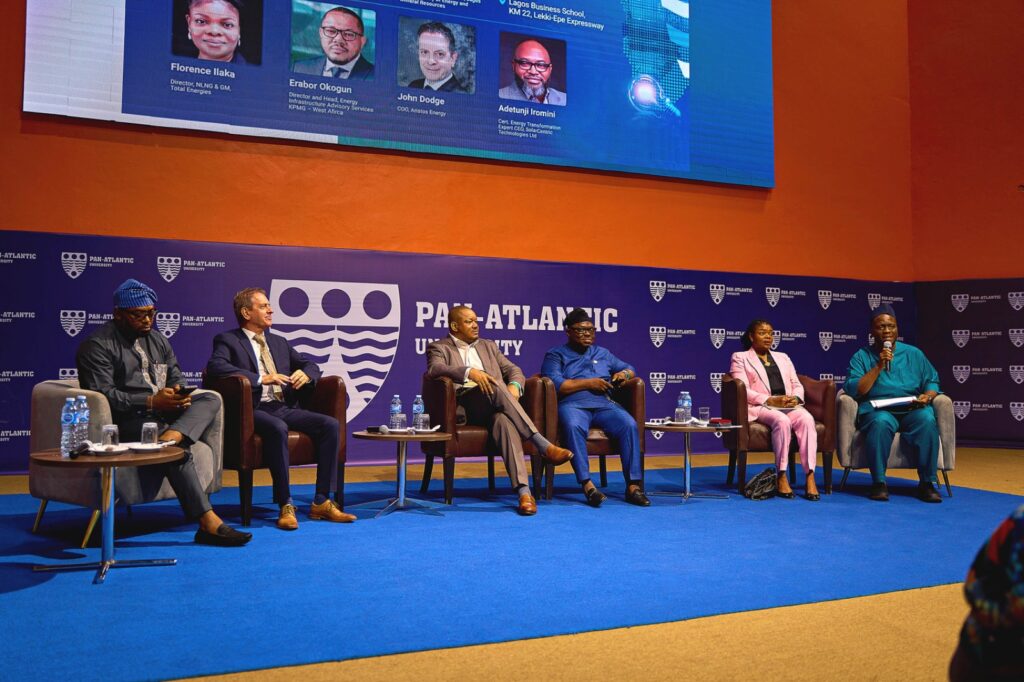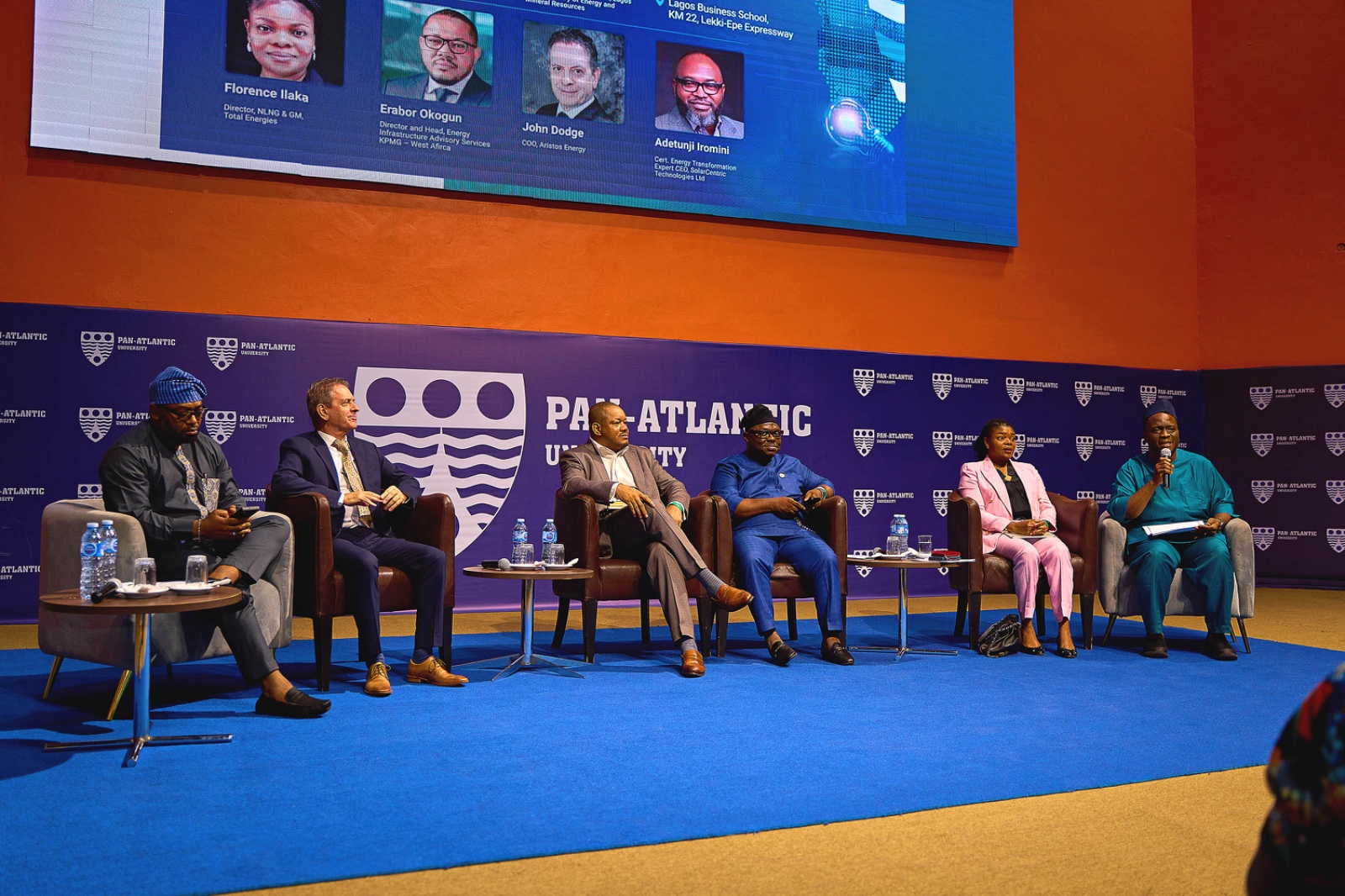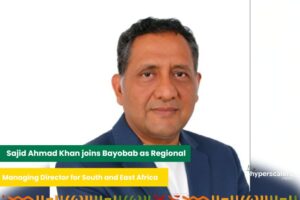The Africa Energy Conference 2025, held at the Lagos Business School, convened policymakers, investors, and industry executives to address one of Africa’s most pressing development challenges: delivering reliable, affordable, and sustainable energy to a rapidly growing population.
With the theme “Powering Nigeria: Advancing Inclusive Energy Security for Sustainable Growth,” the conference explored how policy, governance, and innovative financing can accelerate progress toward universal energy access while striking a balance between climate and economic goals. The event featured a keynote by Engr. Tony Attah, Chief Executive Officer of Renaissance Africa Energy Company and former Managing Director of Nigeria LNG (NLNG), alongside a distinguished panel that included Prof. Nkemdilim Iheanachor, Lagos Business School; Biodun Ogunleye, Lagos State Commissioner for Energy and Mineral Resources; Adetunji Iromini, CEO, SolarCentric Technologies; John Dodge, Chief Operating Officer, Aristos Energy; Erabor Okogun, Director and Head, Energy Infrastructure Advisory Services, KPMG West Africa; and Florence Ilaka, Director, NLNG and General Manager, TotalEnergies.
In his address, Attah highlighted Africa’s “energy paradox” — abundant natural resources but widespread energy deprivation. “We have enough energy, yet 40% of our population still lacks direct access,” he said. “Nigeria’s grid has an installed capacity of 15,000 megawatts, but delivers only about 5,000. Energy poverty is lethal – it kills health, ambition, and hope.” Attah called for urgent reforms to unlock investment and improve transmission efficiency. He emphasized natural gas as a bridge fuel for Africa’s low-carbon transition, saying, “Gas is cleaner and abundant. Switching to gas reduces emissions and provides a pragmatic path toward sustainability.”
He estimated that Nigeria requires 200,000 MW of power and $10 billion annually over the next decade to meet its developmental goals. “We must galvanize the oil and gas sector and scale daily gas production to 14 million standard cubic feet per day,” he said, adding that energy is not just infrastructure but identity and life.

Panelists echoed Attah’s call for pragmatic collaboration between the public and private sectors. Prof. Nkemdilim Iheanachor underscored the need for a coherent energy policy and data-driven decision-making. “Governance is the missing link,” he said. “Policy consistency and credible frameworks are what will unlock investment.” Commissioner Biodun Ogunleye outlined Lagos State’s Integrated Energy Policy, targeting 75% electrification by 2030 with a mix of grid, mini-grid, and renewable solutions. “Lagos must become a test case for how subnational governments can lead in sustainable energy reform,” he said.
Adetunji Iromini, CEO of SolarCentric Technologies, called for flexible financing models to bridge access gaps. “Rural communities are not unviable — they are under-financed,” he said. “Anchor tenant models and blended finance can make decentralized power projects bankable.” Other speakers, including KPMG’s Erabor Okogun and Aristos Energy’s John Dodge, stressed the need for greater transparency and accountability across the energy value chain. “The energy sector must start doing business,” Okogun said. “We need consistent measurement – stock, cash collection, and wastage – to restore investor confidence.”
Participants also proposed the creation of an energy stock exchange to publish real-time gas and power prices, a move they said could improve liquidity, attract private capital, and align market signals across the value chain.
Speakers agreed that Africa’s growth depends on energy as both infrastructure and identity. Nigeria, they noted, must leverage its 210 trillion cubic feet of gas reserves and improve power distribution to fuel industrial expansion. With one gigawatt required for every million citizens, Nigeria would need at least 80 GW to achieve full electrification. As the conference closed, Attah’s message lingered: “Energy is not just infrastructure – it is identity and life. If we get energy right, everything else follows.”
Ready to dive deeper into the hyperscale revolution impacting Africa?
READ MORE HERE: www.africa.hyperscalers.news
Contact Us:
Email: projects@hyperscalers.newsPhone: +2348109003350
Follow us on Social Media: Instagram, Facebook, LinkedIn, x





